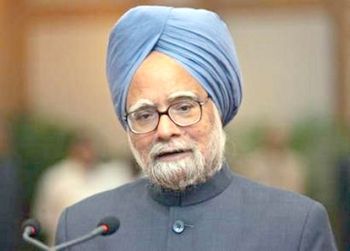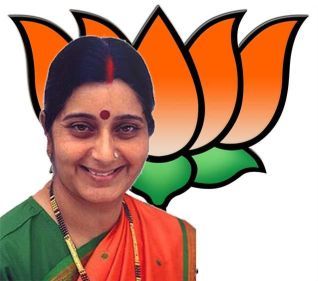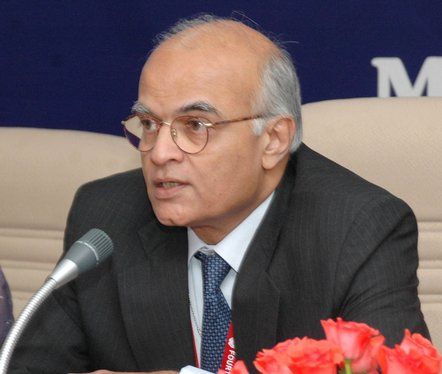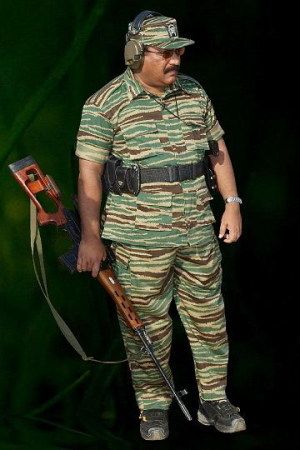
Publisher:
Bonnie King
CONTACT:
Newsroom@Salem-news.com
Advertising:
Adsales@Salem-news.com

~Truth~
~Justice~
~Peace~
TJP
Jun-29-2012 21:21

 TweetFollow @OregonNews
TweetFollow @OregonNews
India's Frustration with Sri Lanka Reaches Breaking Point
Visvanathan Sivam for Salem-News.comThe Delhi Pundits are well aware of the above nefarious history of Sri Lanka.
 Indian Prime Minister Manmohan Singh photos: topnews.in |
(CHENNAI, India) - Frustrated and exasperated the Indian Prime Minister, Manmohan Singh, is sending a top-level emissary, Shiv Shankar Menon, to Sri Lanka to convey in “the strongest terms” New Delhi’s concerns over a string of important issues. Though this may be a late reawakening of the Indian Pundits to the realities of the situation in Sri Lanka, for the beleaguered victims of genocide, this is a welcome reprieve.
This does not necessarily mean that the Indian conscience has taken a rebirth; it is simply a realisation that they had been taken for a ride by a small nation called Sri Lanka. It is not that they didn’t know that this is likely to happen. A look at the Sinhalese history for the past sixty years will reveal to the Indians what they are capable of. Before independence in February 1948, they promised the gullible Tamil leaders that they have nothing to fear from a Sinhala majority state.
Immediately after independence in addition to disfranchising the Indian Tamils, they also started colonising the traditional Tamil Homeland of Sri Lankan Tamils with the sole motive of reducing them to the level of a helpless minority. Peaceful satyagrahas attracted violent rebuttals from Sinhalese thugs and police. Both the Bandaranaike-Chelvanayakam Pact of 1957 and the Senanayake-Chelvanayakam Pact of 1965, meant to put an end to the ethnic conflict, ended up in the rubbish bin before even the ink on the paper dried up.
The Delhi Pundits were well aware of the above nefarious history of Sri Lanka. They were in the same mind set of the Roman dictator Julius Caesar when he was stabbed to death by his most trusted friend Marcus Brutus. The last words of Caesar before his death was, "Et tu, Brute?” translated as "You too, Brutus?" The Indians couldn’t believe Rajapaksa, after all the assistance they had rendered to the Sinhalese to defeat the LTTE, could turn against them as they did to the Tamils. They didn’t mind over 500 Tamil fishermen killed by the Sinhalese navy, nor the genocide of Eelam Tamils, but turning against them smacks of ingratitude.
 |
 |
 Leader of Opposition in the Lok Sabha Sushma Swaraj |
It was only in April this year that an Indian Parliamentary delegation led by Lok Sabha Opposition Leader Sushma Swaraj told government leaders in Colombo, “We stood by you. There is a feeling of India being let down badly. There is disappointment.” This is not an understatement. Gotabhaya Rajapaksa was on record as saying that if not for India’s assistance, the Sri Lankan armed forces could not have defeated the Tamil Tigers.
In addition to training the army in all fields of warfare, India provided the aerial surveillance to sink the arms supply ships of LTTE and blocked all their escape routes. In addition to supplying radar and other armaments, they also provided credit facilities to purchase heavy equipment from other countries like China and Pakistan. Moreover, it was also reported Indian army officers and troops were there to assist the Sri Lankan army.
Immediately, after the war was over in May2009, India was one of the countries that not only defeated the Western sponsored resolution in UNHRC, Geneva, but also praised Sri Lanka for defeating terrorism. Again in March 2012 UNHRC resolution sponsored by US was due for voting. India tried to vote against that resolution; but the pressure from Tamil Nadu was so great that it was forced to support the US resolution – not before it diluted the already diluted resolution. The US resolution did not take into account the UN Panel of Experts Report that was very damning on Sri Lanka’s human rights violations. India diluted it further by introducing changes in the wording whereby Sri Lanka need not listen to UNHRC chief, Navi Pillai’s advice. Still SL government took offence to India voting for the resolution. The one who delivered this master stroke is none other than S.M.Krishna, the Indian Foreign Minister, but that wasn’t sufficient to appease the Sinhalese.
Rajapaksa, apart from some lip service, had no desire to be grateful to the Indians. The moment the war was over he invited Chinese investment into Sri Lank right up to the north, endangering Indian security in its southern flanks. He thus balanced China against India and that has put India in a fix.
 |
 |
 Shiv Shankar Menon |
Shiv Shankar Menon, National Security Advisor to the government of Prime Minister Manmohan Singh, will have one-on-one meetings both with President Mahinda Rajapaksa and Defence Secretary Gotabaya Rajapaksa. The one-time envoy to Sri Lanka arrived in Colombo on Thursday, 28 June 2012 evening and will have the two meetings on Friday. There will be no other engagements for him except for these two meetings.
Among matters Mr. Menon is expected to raise will be issues related to the United States-backed resolution adopted by the UN Human Rights Council in Geneva in March. The three-fold resolution, backed by India, among other matters, called upon the government to (a) to implement the ‘constructive’ recommendations of the LLRC and to take all additional steps necessary to fulfil the government’s relevant legal obligations and commitment “to initiate credible and independent actions” to ensure justice, equity, accountability and reconciliation for all Sri Lankans. (b) It also called upon the government to present a “comprehensive action plan” detailing the steps the government has taken and will take to implement the recommendations made in the LLRC report.
The Sunday Times learns that Mr. Menon will during his meetings both with the President and the Defence Secretary express “strong reservations” over what New Delhi believes is an escalating anti-Indian stance by sections in the government. In this regard, India will raise a senior cabinet minister’s recent “inflammatory” statements which India says are “rousing communal passions” and “obstructing” any possible measures at reconciliation.
(3) Mr. Menon is also to discuss with Defence Secretary Rajapaksa matters relating to demilitarisation in the north. Land grab and militarisation of the north and east is a hot topic not only in Eelam, but also in Tamil Nadu. Since the Mahinda Rajapaksa administration was voted to office in 2005, this is the first time an Indian government emissary has sought to have one-on-one meetings with the President and the Defence Secretary. They come ahead of Sri Lanka’s human rights record being taken up under the Universal Periodic Review (UPR) at the UNHRC in November.
 |
 Sri Lanka's Majinda Rajapakse |
As usual President Mahinda Rajapaksa has his own style of placating the Delhi Pundits. He held talks with Indian Prime Minister Manmohan Singh on the sidelines of the Earth Summit in Rio de Janeiro recently. The President’s office in a four-paragraph statement on the talks said the two leaders had “stressed that the relations between the two countries continued since time immemorial will never be weakened” and that “both leaders discussed the historical relations and the need to be in constant vigil over the strengthening of relations (sic). During crucial times the two states should explore the possibility of arriving at solutions through negotiations”.
What do all these mean to the Tamils; nothing much, of course? The negotiations for solutions will continue, but the land grabs and colonisation will also proceed with the negotiations. India’s main concern is not so much the sufferings it had caused to the Eelam Tamils, but its worries on China’s foothold on Sri Lanka and the antagonism it had aroused in Tamil Nadu. The chances of the Congress being driven out of Tamil Nadu is also there.
India had many opportunities to avoid this predicament. In 1987when the Indian Peace Keeping force (IPKF) moved into the Tamil Homeland in the North-east, they could have been honest with the Tamil Tigers and the Tamils. When Prabhakaran and his delegates were invited to Delhi to discuss the Indo- Sri Lankan Accord, Dixit and the other Indian officials could have accorded them some dignity to their visit. Instead, they were threatened and terrorised by pipe smoking Dixit, until Rajiv Gandhi had to intervene and convince them that their views would be taken into account.
Even when Prabhakaran, after returning from Delhi, was bending backwards and forwards trying to go along with the Indo-Sri Lankan Accord, Dixit and RAW were scheming to marginalise LTTE and even ordered the killing of Prabhakaran when he went for the next meeting with IPKF chief, Gen. Harkirat Singh. It didn’t take long for matters to deteriorate to such an extent that IPKF-LTTE war became inevitable.
 |
 Prabhakaran: Legendary & Notorious. |
The least India could have done is to allow the Ceasefire Agreement of February 2002 to succeed and deal with Prabhakaran at a later date. Instead, Madam Sonia and her clique, M.K. Narayanan, Shiv Shankar Menon and the aspiring President of India, Mukherjee aided and guided Rajapaksa and Gotabhaya to wipe out all the Tamils associated with the LTTE once and for all. The reason was revenge for the murder of Rajiv Gandhi.
But, who killed Rajiv Gandhi? The Jain Commission, set up by the Indian government to investigate the murder, gave an inconclusive open verdict. Narasimha Rao’s guru, Chandraswami, apparently the organiser of the murder plot, and many others involved are moving around freely in the country. As per Jain Commission’s recommendations, why were they not investigated?
Even if it is true that Prabhakaran is the schemer of the plot to murder Rajiv, is it fair to punish the entire Eelam Tamils for the crime of one man? Is it Hindu Dharma? India should have known that the Sinhalese would be only too pleased to drive the Tamils out of their ancient Homeland and that is what is happening now. Aiding and abetting them to commit genocide in Mullivaaikkal is not only a crime against humanity but it is also against all norms of civilised human behaviour. It is not in the national interest either; China has moved unchecked into Tamil Homeland, thus making threat to South India a reality.
A retired Indian Tamil diplomat and a respected commentator, M.K. Bhadrakumar, acknowledge that this small country has deftly outplayed India, the regional superpower. “New Delhi had estimated that its decisive role in helping Sri Lanka vanquish the Tamil Tigers would enhance its prestige and influence in Colombo. However, the LTTE’s destruction has only led to triumphalism in Colombo. Riding a wave of Sinhalese chauvinism, Colombo overnight turned its back on the assurances held out to New Delhi that once the LTTE was done with, a fair, just and equitable solution to the root problem of Tamil alienation could be found. Plainly put New Delhi’s capacity today to nudge Colombo in that direction is virtually nil.”
Under these circumstances let us wait and see how Shiv Shankar Menon, solves the problems of their own creation. Hopefully, he doesn’t perform another appeasement hat trick that puts the Tamils in a greater mess than they are already in.
-------------------------------
Tweet
Follow @OregonNews
 |
Articles for June 28, 2012 | Articles for June 29, 2012 | Articles for June 30, 2012
Salem-News.com:





Terms of Service | Privacy Policy
All comments and messages are approved by people and self promotional links or unacceptable comments are denied.
Correct July 3, 2012 9:18 am (Pacific time)
India doesnt create Tamil tigers and Eelam.Various discriminations towards Tamils forced Tamils to create their own homeland.India's support towards LTTE and now to the SL goverment were only for India's strategic interest and not for the wellbeings of Tamils.This article clearly portrays various betrayals that India had undertook towards the Tamil population in both India and Sri Lanka.Indian governments cant even stop the SL Navy from killing Indian Tamil fishermen but they can help SL goverment to kill Tamils ,their self-respect and their self determination to rule their own country.These clearly prove that Tamils are being treated as dumps both in IndiaandSri Lanka.Will India do the same when Indian fishermen near the Pakistan borders treated with same manner.
Ranjith June 30, 2012 12:02 am (Pacific time)
what a lot of scrap and bullshit vishvanathan. You forgot that India created the LTTE and Ealam in the first place and trained them in TamilNadu too; You have a pretty lopsided mind for a journalist.
[Return to Top]©2025 Salem-News.com. All opinions expressed in this article are those of the author and do not necessarily reflect those of Salem-News.com.